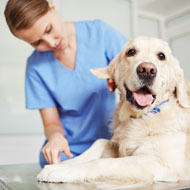Is your practice right for new graduates?

By 2020, millennials are expected to make up 50 per cent of the workforce.
There has been a lot of discussion about millennials and how different they are from other generations. If this is the case, how do we attract, recruit and retain these new graduates in veterinary practice?
Currently the UK workforce is made up of 40 per cent millennials (aged 20-40); 30 per cent ‘generation X’ (aged 35-49); and 30 per cent ‘baby boomers’ (aged 50-70). By 2020, millennials are expected to make up 50 per cent of the workforce.
Speaking at SPVS/VMG Congress in Newport, vet Catriona Curtis looked at the positive aspects of these new millennial graduates - they are tech savvy, knowledgable, enthusiastic, flexible and inclusive. She also explored the more challenging aspects, such as fear of litigation, less settled lives, impatience and reduced loyalty.
A panel of recently qualified veterinary surgeons shared their experiences of their first year in practice, and what they each felt they brought to their respective workplaces.
Their definition of a ‘good practice’ for new graduates was one that gave support, encouraged new vets to ask questions, provided clinical support and open communication and only gave new graduates responsibility when they were ready.
Delegates also shared their views on what a new graduate should be like. Valued qualities included a positive attitude, confidence, drive to succeed, willingness to embrace practice culture, commercial awareness and an understanding that colleagues are there to help.
Catriona talked about the process of employing a new graduate in terms of attracting, recruiting, ‘on boarding’, supporting and retaining.
Attracting
It is important to consider how your practice appears to others and to proactively attract new vets by going to careers days, being involved with extra-mural studies and having an attractive, up-to-date website. New graduates often do not want to do out of hours and are looking for flexibility, mentoring and career development from their prospective practices.
Recruiting
Cat's advice was to use recruiting websites as well as veterinary journals, and to really explain the practice and the job in the advert. The interview should be planned carefully and the ideal type of person required should be understood, with selection criteria listed. It is also important to explain the package offers in full - e.g. holidays, benefits, CPD allowance etc.
On boarding (induction)
This varies tremendously between practices, but it should be planned and carried out to the full if it is to really have any benefit.
Support and retention
Cat stressed the importance of regular reviews and feedback and the need for new graduates to be mentored.
She concluded by explaining: “Their ‘day’ is different from your day” and you must embrace this if recruiting the new graduate is to be a success for both you and them.



 The Federation of Independent Veterinary Practices (FIVP) has announced a third season of its podcast, Practice Matters.
The Federation of Independent Veterinary Practices (FIVP) has announced a third season of its podcast, Practice Matters.